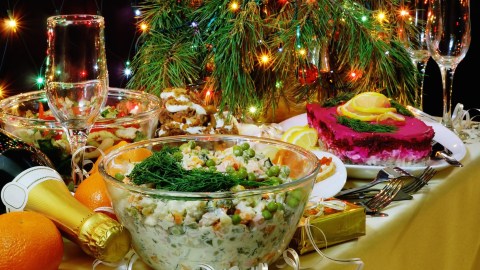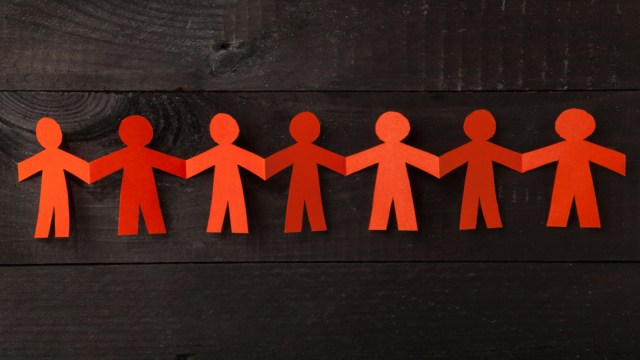Why Do We Overeat and Crash at Holiday Feasts?

Round two of holiday feasting is on its way. No doubt you’ve had plenty of time to recover from your last food binge from Tahnksgiving, you may have even eaten so much you fell asleep on the couch. Christina Agapakis, biologist and writer for Popular Science, wrote an interesting piece explaining the holiday binge phenomena, like why we eat so much and what happens that makes us fall asleep on the couch. (Hint: The sugar rush from all the garlic bread you ate isn’t it).
There’s a theme of overeating that comes with the holidays, so much so that you may wonder how you’re able to consume so much in one meal. Well, your stomach can hold about a gallon of food, which certainly helps. But what makes you able to eat more than you would during a normal dinner has to do with the variety of food at the table. Agapakis says this concept is known as the “smörgåsbord effect,” and it was defined by French physiologist Jacques Le Magnen in 1956.
To test his hypothesis, Le Magnen made a tiny feast for rats of a single kind of food. The rats would eat and stop when they were full. But when Le Magnen introduced four flavors of food, the rats ate three times as much, sampling each treat. Agapakis says the same concept can be applied to humans.
As for dozing after the binge, most people say it’s the crash from sugar and carbs, but Agapakis says that’s all bunk. She believes there’s a perfect storm brewing in your body when you overeat and crash.
Typical food served during a holiday feast consist of chicken, turkey, fish, cheese, and eggs, which are all contain tryptophan. This chemical is converted into the sleep hormone melatonin, which we’ll get back to that later. Then because of your overeating, you stomach signals your brain to slow down on the rolls and your digestive system to speed up its processes. After that, the extra carbs consumed from pie, potatoes, and rolls are converted into simple sugars that forces your body to release insulin, which then cues the cells to start absorbing the extra sugar. But in the process, some of that tryptophan from earlier gets in, which causes you to start your journey to the couch. Unless Grandma saves you with a brew of coffee.
Read more at Popular Science
Photo Credit: Shutterstock




